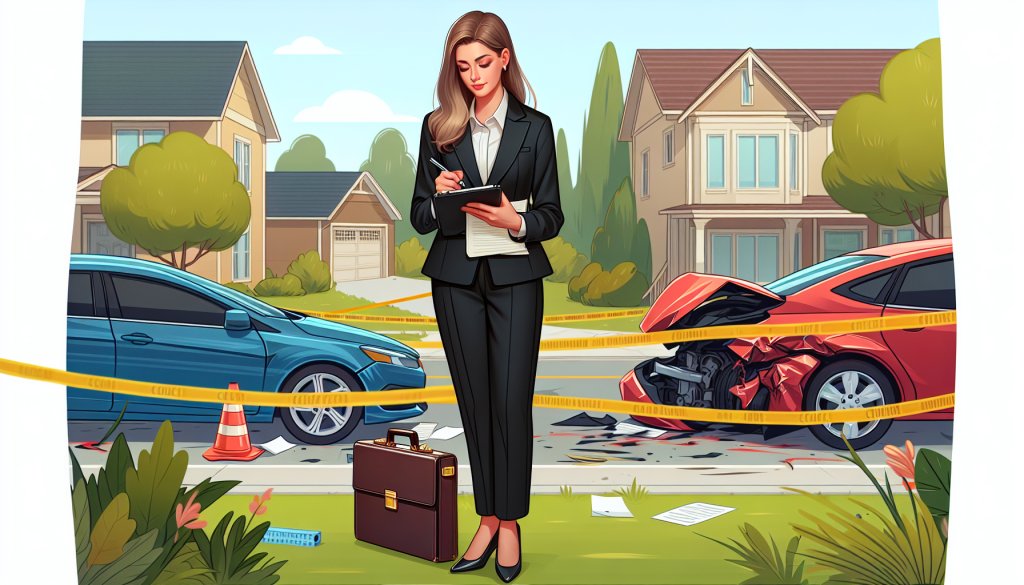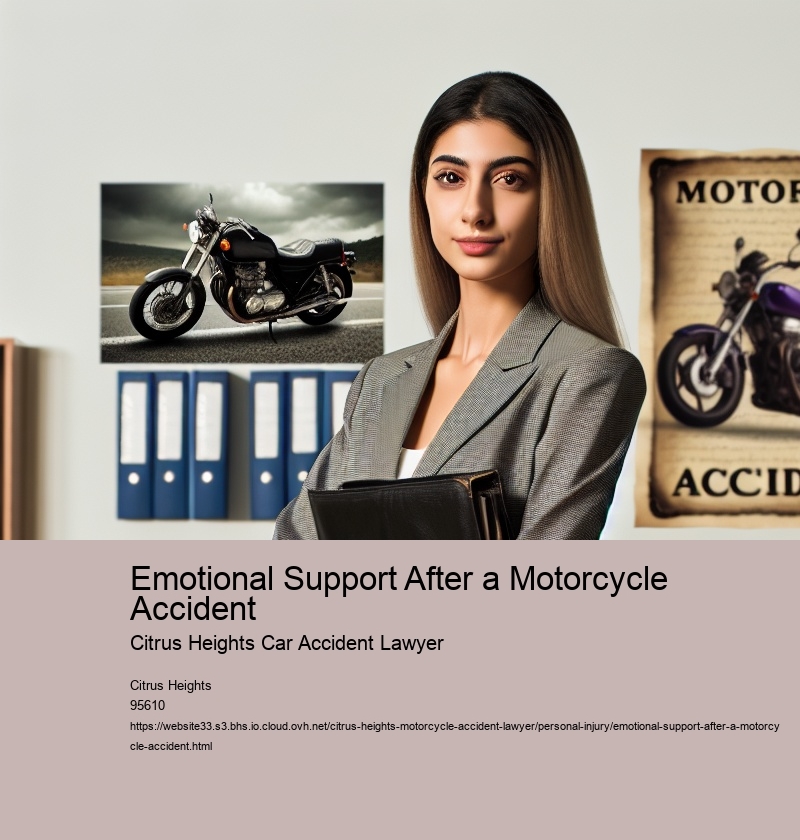Emotional Support After a Motorcycle Accident
surveillance
The Vital Role of Emotional Support After a Motorcycle Accident
Motorcycle accidents, while varying in severity, often leave a profound impact on those involved, extending far beyond physical injuries. Finding a Lawyer Quickly After a Motorcycle Crash . The immediate aftermath is typically marked by a whirlwind of medical evaluations and insurance claims, yet there remains an equally significant aspect of recovery that frequently goes unnoticed: emotional support. The psychological repercussions of such an accident can be as debilitating as physical injuries, underscoring the critical need for comprehensive emotional support.

Firstly, it is important to acknowledge the emotional trauma that often accompanies motorcycle accidents. testimonial The sudden, violent nature of these incidents can lead to a variety of emotional responses, ranging from shock and disbelief to anxiety and depression. Victims may experience post-traumatic stress disorder (PTSD), characterized by nightmares, flashbacks, and a pervasive sense of fear.
Emotional Support After a Motorcycle Accident - reimbursement
- motorcycle helmet
- disability
- Sacramento
- justice
- strain
- malice

The role of family and friends in providing emotional support cannot be overstated. In the aftermath of an accident, victims often feel isolated and overwhelmed. Having a strong support network can alleviate feelings of loneliness and provide a sense of stability during a tumultuous time. Loved ones can offer empathy and understanding, listening to concerns and validating emotions. Their presence acts as a reminder that the victim is not alone in their recovery journey, providing much-needed comfort and reassurance.

Professional counseling and therapy are also instrumental in addressing the emotional aftermath of a motorcycle accident.
Emotional Support After a Motorcycle Accident - unjust enrichment
- surveillance
- motorcycle racing
- bicycle safety
- hazard
- legal liability
- court
- cranial trauma
- road

Support groups offer another valuable avenue for emotional recovery. Connecting with others who have experienced similar trauma can be incredibly therapeutic.
Emotional Support After a Motorcycle Accident - testimonial
- surveillance
- unjust enrichment
- brain damage
- reimbursement
- psychological trauma
- testimonial
In addition to interpersonal support, self-care practices play a pivotal role in emotional recovery. Encouraging victims to engage in activities they enjoy can help alleviate stress and promote a sense of normalcy. Mindfulness practices, such as meditation and yoga, can aid in managing anxiety and promoting emotional well-being. Exercise, too, has been shown to have a positive impact on mental health, releasing endorphins that improve mood and reduce stress.
Insurance companies and healthcare providers should also recognize the importance of emotional support in the recovery process. Comprehensive coverage should extend beyond physical rehabilitation to include psychological care. By doing so, they acknowledge the holistic nature of healing and provide victims with the resources needed to recover fully.
In conclusion, the emotional aftermath of a motorcycle accident is a critical aspect of recovery that demands attention and care. By fostering a supportive environment through family, professional therapy, support groups, and self-care practices, victims can navigate the complex emotions that arise from such traumatic events.
Emotional Support After a Motorcycle Accident - reimbursement
- post-traumatic stress disorder
- legal recourse
- strategy
Emotional Support After a Motorcycle Accident - surveillance
- legal process
- testimonial
- pain
- personal injury
- lead
- lawsuit
- physiotherapy
- spinal cord injury
